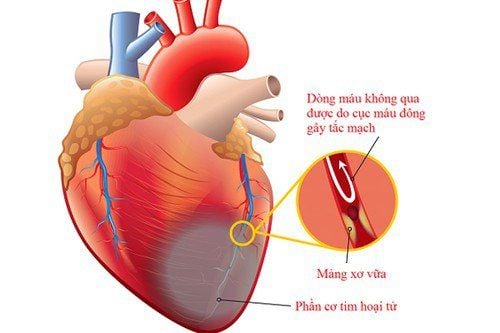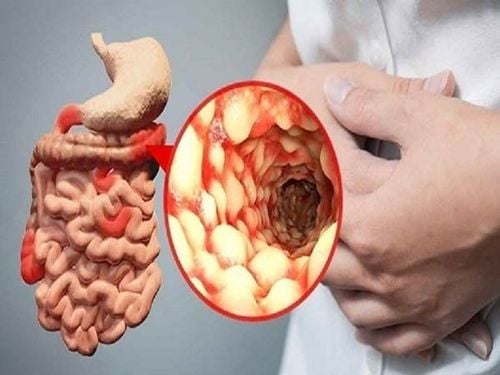This is an automatically translated article.
The article was consulted with MSc Duong Van Sy - Department of Pediatrics - Neonatology, Vinmec Hai Phong International General Hospital.Microcephaly in infants is considered one of the extremely dangerous neurological diseases in young children that mothers should be aware of. Not all parents are equipped with enough knowledge to prevent illness for their children.
1. What is microcephaly in babies?
Microcephaly, also known as microcephaly, is a rare neurological disorder that causes a baby's microcephaly to be smaller than normal and not fully developed. A baby's brain also stops developing after birth. It can happen while the baby is still in the womb or within the first few years after birth.Infantile microcephaly can be a separate condition, meaning it can occur without other major birth defects, or occur in combination with other major birth defects.
2. Symptoms of microcephaly in children
In mild cases, the baby's head is small, but there are no other problems. The head will grow as the child grows, but will still be smaller than a normal child.In some children the brain works normally but in others there will be learning problems which usually improve more or less as the child gets older.
3. What causes microcephaly?

Ankylosing spondylitis. The cranial joints between the bony plates that make up the skull stick together too early in infancy, limiting brain development. Children need surgery to separate the bones that stick together. If there are no problems in the brain, this surgery allows the brain enough space to grow and develop. Chromosome abnormalities. Down syndrome and other conditions can lead to microcephaly. Congenital microcephaly is passed down through generations in the family. Defects in genes involved in early brain development are responsible for the disease. Microcephaly is common in children with Down syndrome and other genetic disorders. Cerebral hypoxia in the fetus. Certain complications of pregnancy or labor can reduce the oxygen supply to the fetal brain. Fetal infection during pregnancy. These include toxoplasmosis, cytomegalovirus, rubella, and chickenpox. Rubella virus, chickenpox or Zika virus caused by mosquito bites. Several cases of microcephaly have been reported in infants of mothers infected with Zika virus during pregnancy. Many studies say there is enough evidence to conclude that Zika virus infection during pregnancy is a cause of microcephaly and other severe fetal brain defects. Exposure to drugs, alcohol, or certain harmful chemicals in the womb. Any of these exposures puts children at risk for brain abnormalities. Severe malnutrition. Not getting enough nutrients during pregnancy can affect your baby's development. Phenylketonuria, also known as PKU, in the mother. PKU is a birth defect that interferes with the breakdown of the amino acid phenylalanine. Environmental factors (acquired microcephaly). The diet lacks nutrients; In addition, there are a number of subjective causes that cause microcephaly in children such as:
Hemorrhage or stroke in infants; Brain damage after birth; Spinal or brain defects; Disruption of blood supply to the fetal brain during development
4. What is severe microcephaly?
Severe microcephaly is an extremely severe form of this condition in which a baby's head is much smaller than expected. Severe microcephaly can be because the baby's brain doesn't develop properly during pregnancy, or the brain develops normally at first but is later damaged at some point during pregnancy.5. Possible problems in children with microcephaly

Epilepsy Developmental delays, such as problems with speech and other developmental milestones (such as sitting, standing and walking) Intellectual disability (decreased ability to learn) exercise and perform daily activities) Problems with walking and balance Eating and drinking limitations, such as difficulty swallowing Hearing loss Vision loss These problems can range from mild to severe and are usually lifelong . Because a baby's brain is small and underdeveloped, babies with severe microcephaly may have more problems, or problems, than babies with milder microcephaly. Severe microcephaly can also be life-threatening.
Currently, there is no definitive treatment for microcephaly, but only the complications caused by this disease. If the baby has mild microcephaly, parents should take the baby for regular check-ups even though the child is still developing normally physically and mentally. If the baby has severe microcephaly syndrome, it is necessary to intervene and treat early. You should take your baby to reputable medical facilities with doctors specialized in the treatment of birth defects to get the best treatment results.
Vinmec International General Hospital has a full system of specialists including pediatricians, pediatric neurologists, speech and physical therapists, and skills to help babies with syndromes. microcephaly development, behavioral changes, reduced seizures, improved quality of life. The baby will be comprehensively examined: hearing, vision, cognition, and movement to come up with the most appropriate treatment regimen. Vinmec's medical team are all well-trained, in-depth, experienced, highly qualified, and understand children's behavior and psychology. Vinmec is fully equipped with modern equipment to help the physiotherapy process achieve the best effect.
If there is a need for examination and treatment of microcephaly in children, please book an appointment directly at the website or contact the hotline for service.
Please dial HOTLINE for more information or register for an appointment HERE. Download MyVinmec app to make appointments faster and to manage your bookings easily.














